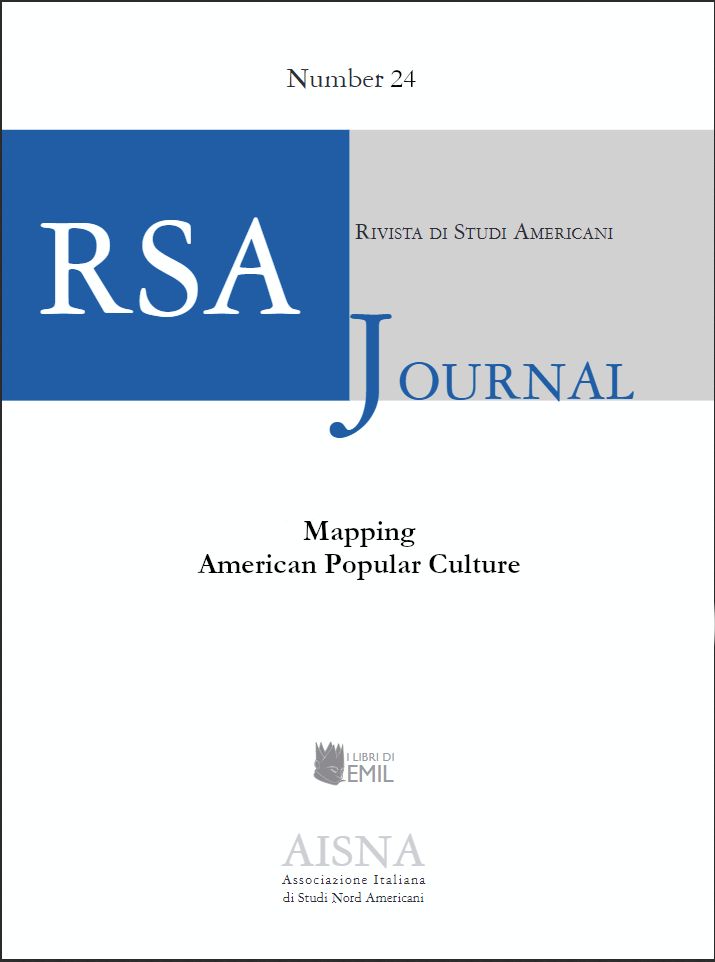Pretending to Be Lincoln
Interracial Masquerades in Suzan-Lori Parks’s Twin Plays
DOI:
https://doi.org/10.13135/1592-4467/8678Keywords:
masquerade, Lincoln, playAbstract
Anachronism is a frequent device in Avant-garde theater. From Eugene O’Neill’s plays to the eclogues of the New York poets, representative historical figures have always fluctuated on stage as emblems of power. In the mid-1960s, Adrienne Kennedy brought in her dream-like drama the incongruous presence of black actors dressed like white leaders like Queen Elizabeth and William the Conqueror, in an interracial camouflage which reversed the mocking practice of blackface minstrelsy. In this iconoclastic fashion, the black dramatist appropriated symbols of white power to allude to the failed attempt of her community to find a definition beyond the patterns of non-black hegemony. More recently, Hip-Hop dramatist SuzanLori Parks enacted a similar interracial masquerade, staging Black imper- sonators of the celebrated Abraham Lincoln. In the twin plays The America Play (1992) and Topdog/Underdog, she features the deep estrangement of Americans of African origin dressed in the genteel attire of the white President, in a racialized version of the most popular anti-slavery advocate in American history. Especially in the latter play, which in 2002 was awarded the first Pulitzer Prize for Drama ever assigned to a black woman dramatist, the African-American actors in Lincoln’s garb appear no less “trapped in Blackness” than Adrienne Kennedy’s hallucinated heroines, being artificially framed within a videoculture which neutralizes racial difference and places them in the indeterminate condition of frustrated spectatorship. In the twin plays that Parks dedicates to the “Great Emancipator” of the black race, Lincoln’s lookalikes revive this national icon through a grotesque ritualization, in a post-racial and media-conscious remodulation of the interplay of blackness and power in American history.
Downloads
Published
Issue
Section
License
RSAJournal will apply a CC BY 4.0 license to all its contributions starting with issue 37 (2026). Previous issues are licensed under a CC BY-NC-ND licence.





